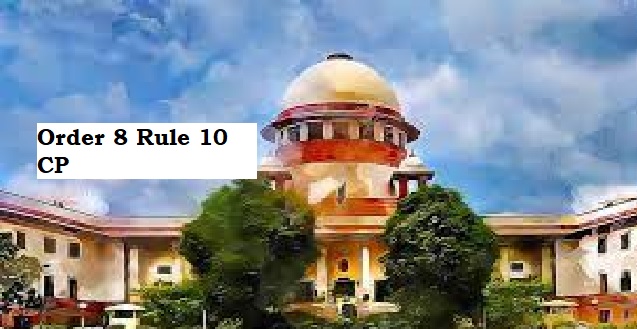


The Supreme Court, in a recent judgment, emphasized that a court cannot decree a civil suit solely based on the defendant's failure to file a written statement. The court clarified that the mere default of the defendant in submitting a written statement does not automatically lead to a judgment against them, especially when it is the plaintiff's responsibility to substantiate their case through evidence.
A bench comprising Justices BR Gavai, Dipankar Datta, and Aravind Kumar underscored the significance of the plaintiff proving their case, irrespective of the defendant's failure to file a written statement within the stipulated timeframe. The court elucidated the provisions of Order 8 Rule 10 of the Civil Procedure Code (CPC), emphasizing two alternatives available to the court: either pronounce judgment against the defaulting defendant or make an appropriate order based on the circumstances.
The court highlighted that the use of the term 'shall' in Rule 10 does not categorize the first alternative as a mandatory provision. The court has the discretion to choose between pronouncing judgment and making another suitable order. This discretion prevents the first alternative from being universally applicable in all cases of a defendant failing to file a written statement.
The judgment clarified that the first alternative, involving the pronouncement of judgment, should not render the second alternative meaningless. The court explained that if the first alternative were always mandatory, the second alternative, which allows the court to make any order it deems fit, would become superfluous. The court emphasized the importance of maintaining balance and not relieving the plaintiff of their obligation to prove the case.
The court further emphasized that the provision is permissive, granting flexibility to the court based on the specific circumstances of each case. It rejected the notion that every instance of a defendant's failure to submit a written statement automatically warrants a judgment against them. The court emphasized the need for the plaintiff to present evidence to substantiate their case, particularly when disputed questions of fact are involved.
The judgment underscored that a civil suit's nature differs from a writ petition, where both facts and supporting evidence must be pleaded upfront. In contrast, a plaintiff in a civil suit is not required to attach evidence to the plaint. Therefore, the failure of a defendant to file a written statement, without disputing the facts, does not automatically entitle them to a judgment in their favor. The court stressed that evidence must be presented to establish the plaintiff's claims.
In conclusion, the court clarified that Rule 10 of Order 8 in the CPC does not impose a mandatory obligation on the court to pass a judgment in favor of the plaintiff solely due to the defendant's failure to file a written statement. The court retains the discretion to evaluate each case individually, considering whether the plaintiff has adequately proven their case and whether disputed facts necessitate further examination.
TAGS: Supreme Court Civil Suit Decree Written Statement Order 8 Rule 10 CPC Judgment Plaintiff's Case Defendant's Default Evidence Disputed Facts Mandatory Provision Discretion Flexibility Court's Decision Legal Interpretation.